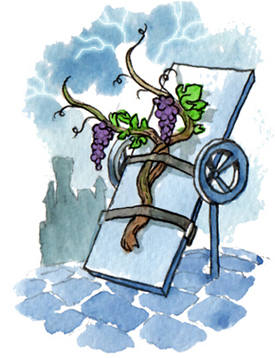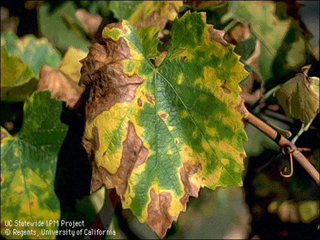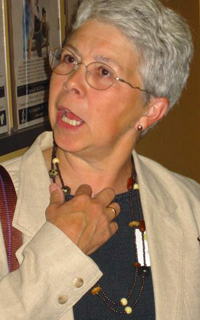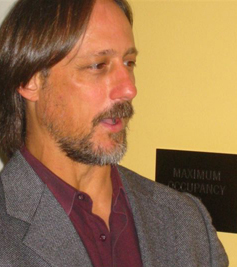

IT'S ALIVE. ALIVE!: Genetically modified grapes may be necessary to ward off evil-doers like Pierce's disease.
California (State Appellation)
Will Napa Valley Grow
Genetically Modified Grapevines?
Grape growers have had this discussion before: the dilemma of resorting to genetically modified grapevines to fight off disease and insects. But this time around there is a tad more anxiety in the talks now that there is more evidence that GMO plants fix problems but also make new ones.
by
Alan Goldfarb
July 5, 2007
One of the points that came out of a recent all-morning talk-a-thon in Napa was that modified grapevines may someday become a reality in Napa – and other AVAs – particularly if Pierce’s disease (PD), carried by the dreaded glassy winged sharpshooter, remains a threat. Currently there is no known antidote to stave off the vector, whose saliva ravages vines.
However, there are inherent as well as perceived problems with such engineered plants, not least of which is community concern as it pertains to safety of the food supply. The field is so new, especially when it comes to grapevines, that we are a

This is what Pierce’s disease looks like on a grape leaf. Ostensibly genetic engineering could make grapevines resistant to it and other diseases.
Listening to one Napa Valley grape grower discuss the issue in January of 2005 and again recently, one wouldn’t think that Carole Meredith has softened her stance on the problems facing modified vines. But if one reads between the lines, there are subtle differences between then and now, indicating that perhaps Meredith has had time to take a more studied approach. Meredith, who spent 22 years at UC Davis and was instrumental in the establishment of the International Grape Genome Program, was clear in her opposition to GE grapevines back in ‘05.
"Why would you want to change your grapes? We might want to do that to solve a problem," she began then, acknowledging the industry's great concern about PD. But she continued, "It's unlikely we'll ever see a single gene to combat a single disease or insect."
Meredith, who is the co-owner of the Mt. Veeder brand, Lagier Meredith, pointed out that "we already have good strategies" to combat some problems such as resistant rootstocks.
As for PD, Meredith said, "We can try to control the movement of the insect vector," but conceded "this is an area where using a GMO approach might be a worthwhile activity."
Adding to the debate this time, she said, “When there are no solutions or less desirable solutions, you might want to turn to molecular engineering … In the long-term, we will have to look into GM. … But we won’t have huge (amounts of) GM in the Napa Valley soon." Additionally, Meredith said, “I’m a little more

Carole Meredith speaking at the Napa Grape Growers forum.
“I’m not scared about GMOs in my food … There are plenty of issues, but I don’t personally object to planting GM grapevines in Napa, if the economic issues and community concerns are addressed. … I think we need to remain calm and respect each other.”
But, as at the conclusion of her remarks back in ’05, Meredith was again asked point blank if she would plant GM vines in her vineyard. "If someone offered me a GE Syrah vine, I would not do (plant) it. “Now, if PD overran the Napa Valley, I might think about it, but I might not grow it."
This time she said succinctly, while raising some vexing questions, “No. We grow Syrah … if it was GM (grapevine), could we call it Syrah and would people want to pay $50 for a wine from an estate that’s been technically modified?”

Dave Henson speaking at the Napa Grape Growers forum.
He added that research is critical, especially in an area where there is so little being done and codified. He is steadfast in his belief that the matter has to be studied and then studied some more, “before we turn it over to private release. “(But) it may be intellectually dishonest when people say they won’t buy GE (food).”
Henson further cautioned, “Did we take the necessary precautions on our watch? Did we ask the right questions when we don’t know the right questions to ask?”
Further, “if you’re a farmer, you’d better be thinking about this. This is not a conspiracy … but we need a moratorium. (Because) how do we know if GE crops are good to eat? There’s no data being kept and (it is) not adequately regulated."










 READER FEEDBACK: To post your comments on this story,
READER FEEDBACK: To post your comments on this story,




